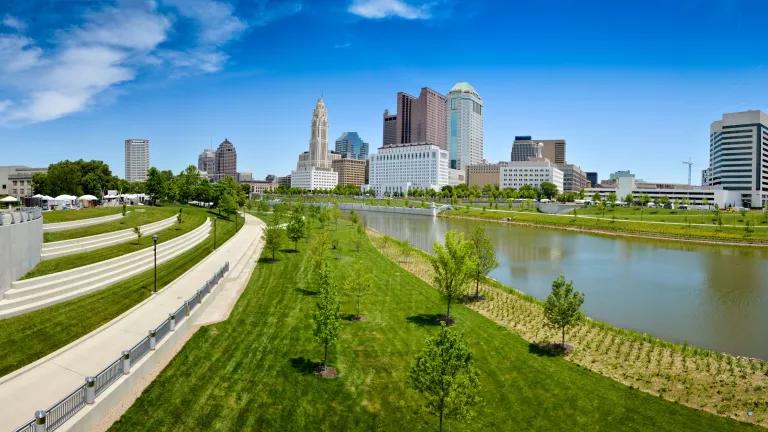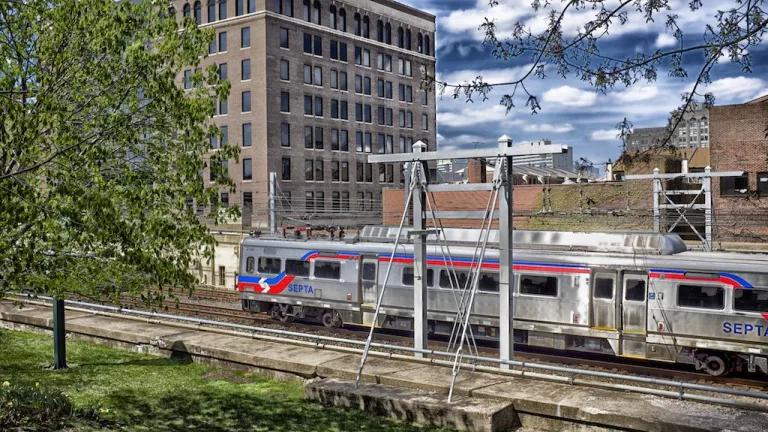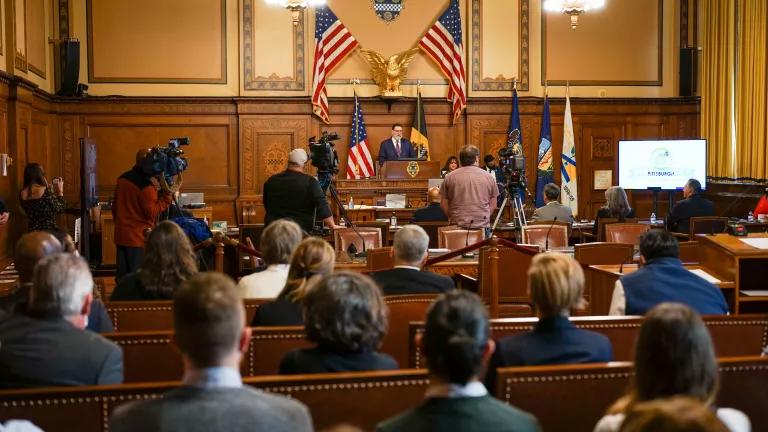American Cities Climate Challenge PACE Roundtable in NYC
Riding a strong tailwind from recent climate and sustainability legislative successes, earlier this month, the Bloomberg American Cities Climate Challenge brought its PACE (Property Assessed Clean Energy) Financing Cohort to New York for an intensive, dialogue-driven Roundtable with the four cities pursuing PACE—Atlanta, Columbus, Pittsburgh and San Antonio—and a collection of senior professionals and industry luminaries.

Riding a strong tailwind from recent climate and sustainability legislative successes, earlier this month, the Bloomberg American Cities Climate Challenge brought its PACE (Property Assessed Clean Energy) Financing Cohort to New York for an intensive, dialogue-driven Roundtable with the four cities pursuing PACE—Atlanta, Columbus, Pittsburgh and San Antonio—and a collection of senior professionals and industry luminaries, including: New York City Energy Efficiency Corporation, PACENation, the Connecticut Green Bank, Inclusive Prosperity Capital, Energize NY, Greenworks Lending and PACE Financing Services.
The goal of the Roundtable was to provide the four Climate Challenge cities with the knowledge, tools and PACE-industry connections that will accelerate the design and growth of their PACE programs. Instead of a lecture and Q&A format, each work session was designed around an aspect of the PACE life-cycle—design, administration and management, growth and expansion—and grouped the cities based on common factors, such as stage of development or program characteristics.
“The Climate Challenge is geared to focus impact and accelerate the initiatives that the cities have identified as sustainability and resiliency priorities,” says Douglass Sims, Director of NRDC’s Center for Market Innovation, and senior manager for the Finance Strategy team. “We are trying to increase opportunities for immediate action by adding resources, capacity and expertise to those already existing efforts.”
What Is PACE?
PACE is a simple and effective way to finance energy efficiency, renewable energy, and water conservation upgrades to buildings. PACE can pay for new heating and cooling systems, lighting improvements, solar panels, water pumps, insulation, and more for almost any property—homes, commercial, industrial, non-profit, and agricultural. Property owners across the US are using PACE financing because it lowers utility bills and may make their buildings more valuable. PACE pays for 100% of a project’s costs and is repaid for up to 20 years with an assessment added to the property’s tax bill. For more information visit here.
Key Insights from the Roundtable
Because each City is at a different stage of PACE development, the Roundtable included break-out sessions with the industry experts in attendance. The cities took great advantage of this opportunity, starting with a candid assessment of each program, diving deep into individual and common challenges, and tapping into the knowledge partners assembled to offer their insight based on PACE experience, positive and otherwise, since the market was created more than 10 years ago.
“…without question the single best PACE discussion session that I have had the opportunity to participate in since I stepped into this world six years ago. I certainly learned a great deal and I was equally glad to share our learnings with others looking to get started in this nascent industry. The honest and open exchange of ideas, the candor of the participants at all levels, the willingness to share experiences of success and of failure, and the eagerness to listen and learn without ego made it unusually refreshing.”
Robert Fischman, Managing Director, Energize NY
Topics covered included: program design and administration, identifying capital sources, market adoption, growth, and the measurement of reduced costs and carbon emissions resulting from PACE. Susan Leeds, co-CEO of NYCEEC, emphasized the relevance of the topics being discussed, “It’s vitally important to have these conversations in the early stages of PACE development. Cities are best served by having a complete picture of the available options before making decisions about their programs.”
PACE Partners
Each of the four cities was in attendance, along with the local governmental partners in their PACE programs. This collaborative approach is a hallmark of the Climate Challenge. Columbus, Pittsburgh and San Antonio currently do, or will, partner with their surrounding county governments, whose tax assessment and collection duties are central to any PACE efforts. Atlanta, responsible for its own tax collections within city limits, is partnered with its own economic development authority, InvestAtlanta.
PACE Experts
Joining the cities was a Who’s Who of leaders from the PACE financing world. Our working lunch discussion was led by Cisco DeVries, the chair of PACENation, the nation’s leading PACE advocacy group, and the inventor of PACE. Beginning with a brief history of his time with PACE, and its creation in California more than 10 years ago, he quickly transitioned into current issues facing the PACE industry such as creating greater demand, designing effective programs and the potential for future regulations by the Consumer Finance Protection Bureau.
The Current PACE Market
Another highlight of the day was a recap of the recent successful passage of New York City’s Climate Mobilization Act by Aaron Ordower, of the NYC Mayor’s Office of Sustainability. New York’s story offered another key trademark of the Climate Challenge, an emphasis on peer learning. Many of the professionals in attendance have a long history with energy efficiency financing in New York and played key roles in the legislative process.
Customized Work Plans
The day ended with each City developing and reading out work plans that will guide its PACE efforts for the next several months. In collaboration with their Delivery Associates implementation coaches, and NRDC city strategists, they assessed needs, capacity and the resources available to move PACE forward and meet or exceed the milestones the cities have set for themselves through 2020.
Atlanta’s Shelley Peart, said of the day, “The Climate Challenge did a great job of putting the Roundtable together. It was very informative. I can’t wait to get back to Atlanta and keep the momentum going.”
About the American Cities Climate Challenge
The American Cities Climate Challenge is an unprecedented opportunity for 25 ambitious cities to significantly deepen and accelerate their efforts to tackle climate change and promote a sustainable future for their residents. Originally open to 20 American cities, the program was expanded to 25 cities due to the strength of the applications received.
As Climate Challenge winners, 25 cities have been accepted into a two-year acceleration program with powerful new resources and access to cutting-edge support to help them meet—or beat—their near-term carbon reduction goals. These resources include a philanthropy-funded team member to facilitate the development and passage of high impact policies, training for senior leadership to assist with implementation of their proposed climate plans, and citizen engagement support to maximize community buy-in. Visit the American Cities Climate Challenge for more information.



